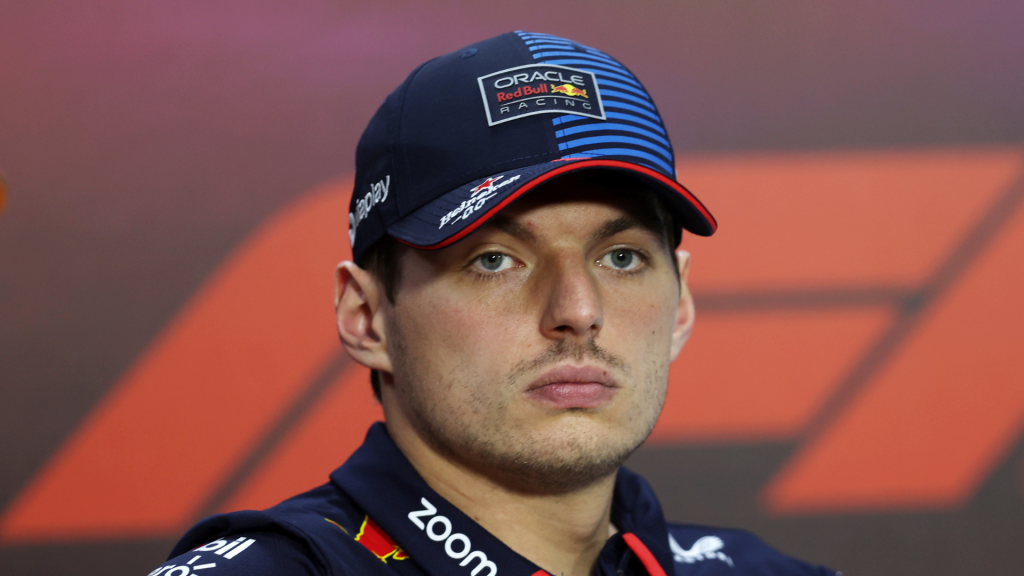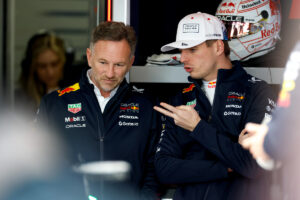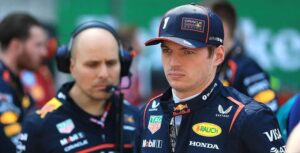BREAKING NEWS: Max Verstappen draws comparison to F1 legend following S…read more

Max Verstappen Earns Praise for Mature Response to Saudi Arabian GP Penalty, Compared to F1 Legend Jackie Stewart
Max Verstappen’s calm and composed reaction to his controversial penalty at the Saudi Arabian Grand Prix has drawn widespread admiration, with F1 pundit Peter Windsor likening the Red Bull driver’s professionalism to that of three-time world champion Sir Jackie Stewart.
Verstappen was handed a five-second time penalty for leaving the track and gaining an advantage over McLaren’s Oscar Piastri during a heated Turn 1 battle at the start of the race. The penalty, served during his pit stop, ultimately cost him the lead and left him to settle for second place behind Piastri.
Despite the obvious frustration over the incident particularly with the implications it had for the race result Verstappen chose not to criticize the FIA stewards publicly. In post-race interviews, the reigning world champion remained composed and avoided any inflammatory comments. He stated simply that “people can’t handle the full truth” and expressed concern that any further remarks could be twisted or misinterpreted.
This mature response impressed Windsor, a long-time F1 insider, who said Verstappen’s demeanor was “unbelievably professional” and reminiscent of the legendary Sir Jackie Stewart, known for his thoughtful approach to racing and sportsmanship. “Max didn’t complain, didn’t play the blame game. He took the result in stride and focused on the positives something you’d expect from a veteran at the very top of the sport,” Windsor said.
Windsor noted that while Verstappen could have used the moment to air his grievances or argue the fairness of the decision, he instead prioritized his team’s morale and the broader strategy of the season. “He said all the right things. That shows growth and maturity. He thanked the team, acknowledged what went right, and moved on.”
The analyst also pointed out the ambiguity that sometimes surrounds racing regulations, especially in wheel-to-wheel scenarios like the one between Verstappen and Piastri. According to the FIA’s post-race documents, Piastri’s car had a legitimate position at the corner apex, and Verstappen was ruled to have gained a lasting advantage by not giving space. However, Windsor argued that these moments are complex and often subjective, adding, “It’s hard to demand that Verstappen return a position that he technically never lost.”
While Windsor admitted Verstappen was in the wrong for the Turn 1 move, he emphasized that such bold maneuvers are part of a racer’s DNA. “No F1 driver is going to admit fault in that kind of situation. Max did what racers do he made a move, believed it was justified, and took his chances.”
He concluded by praising Verstappen’s long-term thinking: “He’s matured a lot. He knew that speaking out could create unnecessary conflict with the FIA, and in a sport where politics are as important as performance, that kind of awareness is invaluable. His mindset is now about the big picture—and that’s exactly what separates good drivers from all-time greats.”
The incident and Verstappen’s response have only heightened anticipation for the rest of the season, as Red Bull and McLaren prepare to continue their increasingly fierce championship battle.




